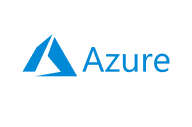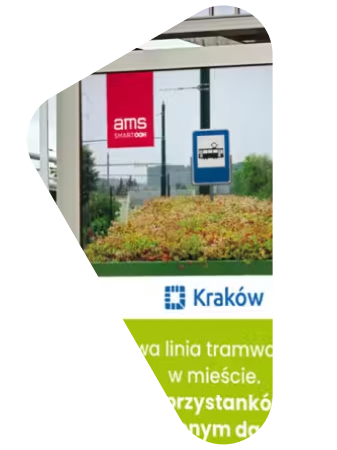Data Warehouse
Migration to Cloud
Flexible infrastructure that grows with your company and lets you pay only for the resources you actually use.
Let’s talkWe drive the success of leaders:






Switch from on-premise
to a scalable solution
With on-premise solutions, you pay for maximum load, which you typically don’t use. Cloud optimizes costs, adjusting performance to demand.

A solution that grows with your business
A cloud Data Warehouse lets you select components tailored to your current business needs, ensuring you can manage increasing data volumes effectively. As your company grows, you can scale easily while maintaining efficient data processing and controlling costs.

Charge only for usage
A cloud Data Warehouse has almost zero initial cost. As your company grows, the fees scale with actual usage, so you only pay for increased performance when you need it.

Quick setup
Cloud solutions are built quickly using ready-made components, just like LEGO. Tailored data migration services and data transfer solutions ensure a smooth transition with minimal downtime, enhancing efficiency and reducing costs.

Easy scalability
Do you have more data and need greater performance right away? The cloud easily adapts to increased data or performance needs without downtime, a challenge with on-premise systems.

Better protection against data loss
Cloud-based Data Warehouse offer superior backup and recovery solutions across multiple servers, minimizing downtime and ensuring your datasets remain accessible after unexpected failures.

A future-ready solution
Cloud Data Warehouse software integrates seamlessly with technologies like AI, machine learning, and Big Data analytics, enabling real-time insights without costly updates or hardware upgrades.
Unlock the benefits of a cloud Data Warehouse
Data Warehouse migration with
a tech-savvy partner
Seamlessly migrate your Data Warehouse with a trusted expert who understands both business and technology. We ensure efficiency, security, and minimal disruption while aligning the migration with your strategic goals.
Knowledge and expertise at every stage:
Discovering business and technological needs together
A deep understanding of business and technology ensures a smooth cloud migration. Our experts identify the best PaaS, SaaS, or IaaS solutions for scalability, security, and cost efficiency, aligning seamlessly with business goals.
As part of this process, we assess data migration strategies to ensure a seamless transition with minimal disruption.
Designing the architecture
Cloud architects develop a well-structured architecture with built-in security, compliance, and governance. A scalable framework ensures long-term performance and adaptability.
Populating the cloud with data
Extracting, integrating, and transforming data ensures a smooth migration while maintaining accuracy and consistency. Our expertise in data transformation, mapping, formatting, and debugging prevents errors, minimizes downtime, and enhances data integrity for a seamless transition.
Implementing and configuration
Our experts develop tailored cloud solutions, ensuring seamless integration and scalability. They build robust Data Warehouse and configure analytical tools, empowering businesses with real-time insights and optimized performance.
Testing and validating the ready solution
We guide clients through migration, ensuring a successful Data Warehouse migration with thorough testing and meticulous planning. Post-migration, they monitor performance and security, optimizing efficiency and reliability.
Deploying, training, and monitoring
Our engineers deploy the solution, train users for seamless adoption, and provide ongoing support. With continuous monitoring and AI-driven innovation, they optimize performance and enhance data management in the warehouse.

Data Warehouse ready for the future
6 signs that you should consider moving to the cloud

Silos and lack of data democratization
Separate reporting in transactional systems means limiting access to IT departments, and reducing usability for other users.

Slow reporting
Due to low performance in data processing in traditional Data Warehousing methods, you have to wait for key reports for hours.

High infrastructure costs
On-premise Data Warehouses require significant upfront investments in hardware, ongoing maintenance, and electricity, driving up costs.

Limited disk space
Growing datasets overwhelm server storage, making expansion difficult and expensive.

Lack of scalability
Increasing data and new sources slow down on-premise systems, reducing overall performance.

Low performance under load
Transactional and cyclical queries run slower when processing multiple reports and analytics simultaneously.
Clouds at your fingertips
When choosing cloud solutions tailored to your goals and processes, we focus solely on objective criteria such as scalability, performance, cost, and task alignment. We use the most efficient technologies from the three largest providers to ensure maximum productivity and flexibility both now and in the future.






Why Data Warehouse Migration
with Alterdata?
Cloud tailored to your needs
We take into account the data sources and use, the technologies in the client’s company, and their preferences.
Solutions are built around your team’s competencies, with training provided for smooth operation.
End-to-end implimentation
We support the client throughout the entire cloud migration process, explaining what we do and the benefits they will gain. A well-devised migration strategy is crucial to ensure a smooth transition and mitigate potential risks in data migration projects.
We ensure service continuity and avoid transferring problems to the cloud.
Solutions for success
We combine an understanding of business goals with the ability to create solutions that help achieve them effectively.
We don’t just implement the cloud; we also help you use it efficiently.
A broad tech-stack
We create solutions based on efficient technologies from Azure, AWS, and Google Cloud.
With these, we build platforms perfectly tailored to the clients’ needs.
Certified specialists
Our experts possess cutting-edge knowledge and extensive experience across diverse industries and business models.
This expertise allows them to select solutions that ensure long-term success.
Continuous improvements
We build the foundation of an efficient system and continuously improve it by constantly updating.
We add functionalities when the company faces new challenges.
Looking for a Data Warehouse migration experts?
Discover our clients’ success stories

How data-driven advertising management helped an AMS agency maintain its leading position.
For the AMS team, we created a reliable and user-friendly ecosystem by integrating key data from external providers, including traffic measurements from mobile devices.
Thanks to the solutions offered by Alterdata, AMS was able to provide clients with access to key metrics, giving them greater control over campaigns and optimization of advertising spend.

Implementation of Business Intelligence and integration of distributed databases in PŚO
For Polish Open Fiber, we built an advanced Data Hub architecture based on an efficient and scalable Google Cloud ecosystem, utilizing business intelligence solutions to enhance operational efficiencies. We implemented Power BI as a Business Analytics tool and also trained its users.
This improved data availability and accelerated the creation of interactive reports and dashboards.
Tech stack: the foundation of
our work
Discover the tools and technologies that power the solutions created by Alterdata.

Google Cloud Storage enables data storage in the cloud and provides high performance, offering flexible management of large datasets. It ensures easy data access and supports advanced analytics.

Azure Data Lake Storage is a service for storing and analyzing structured and unstructured data in the cloud, created by Microsoft. Data Lake Storage is scalable and supports various data formats.

Amazon S3 is a cloud service for securely storing data with virtually unlimited scalability. It is efficient, ensures consistency, and provides easy access to data.

Databricks is a cloud-based analytics platform that combines data engineering, data analysis, machine learning, and predictive models. It processes large datasets with high efficiency.

Microsoft Fabric is an integrated analytics environment that combines various tools such as Power BI, Data Factory, and Synapse. The platform supports the entire data lifecycle, including integration, processing, analysis, and visualization of results.

Google BigLake is a service that combines the features of both data warehouses and data lakes, making it easier to manage data in various formats and locations. It also allows processing large datasets without the need to move them between systems.

Google Cloud Dataflow is a data processing service based on Apache Beam. It supports distributed data processing in real-time and advanced analytics.

Azure Data Factory is a cloud-based data integration service that automates data flows and orchestrates processing tasks. It enables seamless integration of data from both cloud and on-premises sources for processing within a single environment.

Apache Kafka processes real-time data streams and supports the management of large volumes of data from various sources. It enables the analysis of events immediately after they occur.

Pub/Sub is used for messaging between applications, real-time data stream processing, analysis, and message queue creation. It integrates well with microservices and event-driven architectures (EDA).
Google Cloud Run supports containerized applications in a scalable and automated way, optimizing costs and resources. It allows flexible and efficient management of cloud applications, reducing the workload.

Azure Functions is another serverless solution that runs code in response to events, eliminating the need for server management. Its other advantages include the ability to automate processes and integrate various services.

AWS Lambda is an event-driven, serverless Function as a Service (FaaS) that enables automatic execution of code in response to events. It allows running applications without server infrastructure.

Azure App Service is a cloud platform used for running web and mobile applications. It offers automatic resource scaling and integration with DevOps tools (e.g., GitHub, Azure DevOps).

Snowflake is a platform that enables the storage, processing, and analysis of large datasets in the cloud. It is easily scalable, efficient, and ensures consistency as well as easy access to data.

Amazon Redshift is a cloud data warehouse that enables fast processing and analysis of large datasets. Redshift also offers the creation of complex analyses and real-time data reporting.
BigQuery is a scalable data analysis platform from Google Cloud. It enables fast processing of large datasets, analytics, and advanced reporting. It simplifies data access through integration with various data sources.

Azure Synapse Analytics is a platform that combines data warehousing, big data processing, and real-time analytics. It enables complex analyses on large volumes of data.

Data Build Tool simplifies data transformation and modeling directly in databases. It allows creating complex structures, automating processes, and managing data models in SQL.

Dataform is part of the Google Cloud Platform, automating data transformation in BigQuery using SQL query language. It supports serverless data stream orchestration and enables collaborative work with data.
Pandas is a data structure and analytical tool library in Python. It is useful for data manipulation and analysis. Pandas is used particularly in statistics and machine learning.

PySpark is an API for Apache Spark that allows processing large amounts of data in a distributed environment, in real-time. This tool is easy to use and versatile in its functionality.

Looker Studio is a tool used for exploring and advanced data visualization from various sources, in the form of clear reports, charts, and interactive dashboards. It facilitates data sharing and supports simultaneous collaboration among multiple users, without the need for coding.

Tableau, an application from Salesforce, is a versatile tool for data analysis and visualization, ideal for those seeking intuitive solutions. It is valued for its visualizations of spatial and geographical data, quick trend identification, and data analysis accuracy.

Power BI, Microsoft’s Business Intelligence platform, efficiently transforms large volumes of data into clear, interactive dashboards and accessible reports. It easily integrates with various data sources and monitors KPIs in real-time.

Looker is a cloud-based Business Intelligence and data analytics platform that enables data exploration, sharing, and visualization while supporting decision-making processes. Looker also leverages machine learning to automate processes and generate predictions.
Terraform is an open-source tool that allows for infrastructure management as code, as well as the automatic creation and updating of cloud resources. It supports efficient infrastructure control, minimizes the risk of errors, and ensures transparency and repeatability of processes.

GCP Workflows automates workflows in the cloud and simplifies the management of processes connecting Google Cloud services. This tool saves time by avoiding the duplication of tasks, improves work quality by eliminating errors, and enables efficient resource management.

Apache Airflow manages workflows, enabling scheduling, monitoring, and automation of ETL processes and other analytical tasks. It also provides access to the status of completed and ongoing tasks, as well as insights into their execution logs.
Rundeck is an open-source automation tool that enables scheduling, managing, and executing tasks on servers. It allows for quick response to events and supports the optimization of administrative tasks.

Python is a programming language, also used for machine learning, with libraries dedicated to machine learning (e.g., TensorFlow and scikit-learn). It is used for creating and testing machine learning models.

BigQuery ML allows the creation of machine learning models directly within Google’s data warehouse using only SQL. It provides a fast time-to-market, is cost-effective, and enables rapid iterative work.

R is a programming language primarily used for statistical calculations, data analysis, and visualization, but it also has modules for training and testing machine learning models. It enables rapid prototyping and deployment of machine learning.

Vertex AI is used for deploying, testing, and managing machine learning models. It also includes pre-built models prepared and trained by Google, such as Gemini. Vertex AI also supports custom models from TensorFlow, PyTorch, and other popular frameworks.

Bartosz Szymański
Data Strategy and Customer Relations Director
Your data holds potential.
Ask us how to unlock it
FAQ
How long does it take to migrate a Data Warehouse to the cloud?

It depends on the size and complexity of your infrastructure. For simple Data Warehouse, the process takes a few weeks to about 2-3 months, while more complex systems may require up to 6 months. We carry out the process in stages, minimizing downtime and the risk of errors while ensuring that no data is lost during the transfer.
How will I be able to measure the effects of migrating a Data Warehouse to the cloud?

You can evaluate the results of migration using metrics such as improved query performance or reduced data processing time. Other KPIs include system availability, scalability flexibility, and the speed of implementing new features. Additionally, you can monitor reduced operational costs by paying only for actual resource usage.
Will I be able to use my existing analytics tools after the migration?

Yes, cloud environments are flexible and offer easy integration with popular BI, ETL, or other tools. Additionally, in the cloud, you can use native analytics tools from the same provider as your cloud platform, ensuring optimal integration and maximum utilization of available resources.
Does Alterdata help choose a cloud provider and optimize the Data Warehouse?

Yes, we collaborate with providers of the best cloud solutions and take an individualized approach to each of our clients. This allows us to offer solutions that ensure maximum performance, flexibility, and cost savings by paying only for the resources and services actually used.
Will the cloud not be too costly for my needs?

The cloud is a scalable solution that can be more cost-effective than traditional systems—primarily due to the ability to select the exact scope currently needed for computations and tasks related to data storage or processing. Our team will advise on the optimal approach for your company. What sets Alterdata apart is that a personalized offer also includes an estimate of the maintenance costs for such a solution.
Do I need expertise in data migration to the cloud within my organization?

You don’t need advanced expertise in data migration. Our team will handle the entire process, supporting you at every stage and providing training for your team.
Does the external data engineer have access to all the information in our company?

We ensure complete data security. Access to information is strictly controlled, and our experts only have visibility into the data necessary for project execution, adhering to the highest protection standards. We do not extract data; it is stored exclusively on the client’s side.
How will we manage maintaining two solutions?

During the transition period, we offer support in managing both cloud and on-premises solutions. We will develop a strategy to minimize disruptions to your business operations.
Will the new technologies be compatible with our technology?

Our migration solutions are designed to ensure compatibility with your current and future technologies. We adapt to your requirements, providing complete flexibility.
Should I migrate all the data or only a part of it?

The decision to migrate all or part of your data depends on your needs. Together, we will develop a strategy that optimizes costs and ensures efficient use of the cloud.
Is the company technologically objective and will it consider our technology preferences?

Alterdata is technologically independent. Our recommendations are always based on your preferences and the best solutions available on the market, ensuring optimal effectiveness and alignment with your requirements. While we partner with many technology providers, we do not sell their products. This gives us maximum objectivity in selecting the most suitable technology to address your problem.












